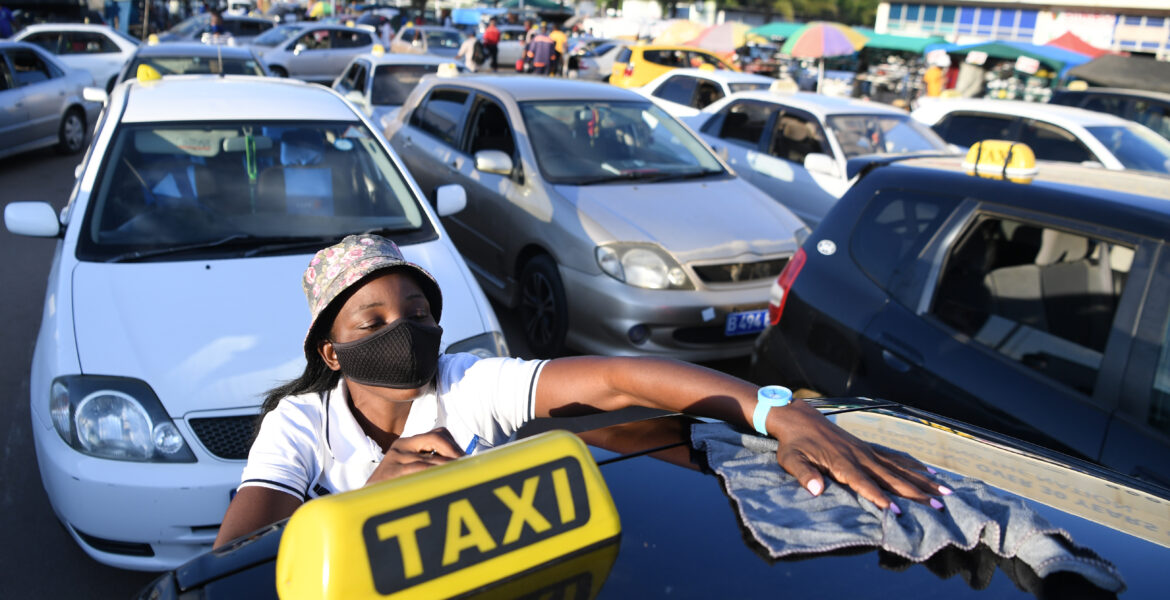Botswana Mineworkers Union (BMWU) – Women’s Council joins the world in commemorating the International Women’s Day on the 8th March 2021, under the theme “Chose To Challenge”.
The Women’s Council (WC) was formally constituted in 2019 at the BMWU’s 21st Delegates Congress with the aim of giving voice to and creating a platform for female mineworkers to ventilate their work-related issues in the mining industry. Since mining has historically been associated with masculinity, the WC sought to widen an otherwise shrinking space for women leadership within the BMWU ranks and wider mining industry.
Mining has invariably been reserved for men due to their brute strength and ability to cope with its labour intensity. Whilst women are now permitted to work in the mines, the environment within which they work and the mining policies and legal frameworks, have remained gender insensitive.
There are not many women in the top positions of leadership in the mining industry despite holding better qualifications than men. Female workers who fall pregnant are exposed to unfavourable conditions. Personal Protective Equipment (PPEs) are standard and their designs are not suitable for a pregnant woman especially during the first trimester when the pregnancy is still at a sensitive stage. Pregnant female miners working underground are still compelled to do hard labour as the employer is by law permitted to grant them 6 weeks of leave for confinement.
This is provided for under Part XII of the Employment Act. Female miners working night shift or continuous operations (CONTOPS) are highly exposed to risk and vulnerable to sexual violence. Transportation for those on night shift has designated pick up and drop off points, which renders female mineworkers targets for possible assaults.
Given the challenges faced by female mineworkers, the WC intends to negotiate with management across various mining houses to establish self-defense classes for women. WC will advocate for the ratification and domestication of ILO Convention 190, which seeks to eliminate violence and sexual harassment in the workplace. WC intends to play a meaningful role in the impending law reform process. WC chooses to challenge the current status quo in the mining industry and is committed to advance the dreams and aspirations of all women in the mining sector and especially those in the bargaining unit.
We call on:
a) The Government of Botswana to ratify and domesticate ILO Convention 190
b) The Botswana Chamber of Mine, to apprise us on what their position is regarding gender-based violence in the work place and mining practices that exposes women to risk.
c) All mining houses to develop gender sensitive operational policies.
d) Call on Parliament to review and amend sections of the Employment Act providing for continuous operation (Con-tops) and six (6) weeks maternity leave for pregnant female workers.
e) Call on various stakeholders to assist the WC with resources for capacity and convening of its congress.
ISSUED BY BOTSWANA MINE WORKERS UNION
Botswana Mineworkers Union (BMWU) – Women’s Council joins the world in commemorating the International Women’s Day on the 8th March 2021, under the theme “Chose To Challenge”.
The Women’s Council (WC) was formally constituted in 2019 at the BMWU’s 21st Delegates Congress with the aim of giving voice to and creating a platform for female mineworkers to ventilate their work-related issues in the mining industry. Since mining has historically been associated with masculinity, the WC sought to widen an otherwise shrinking space for women leadership within the BMWU ranks and wider mining industry.
Mining has invariably been reserved for men due to their brute strength and ability to cope with its labour intensity. Whilst women are now permitted to work in the mines, the environment within which they work and the mining policies and legal frameworks, have remained gender insensitive.
There are not many women in the top positions of leadership in the mining industry despite holding better qualifications than men. Female workers who fall pregnant are exposed to unfavourable conditions. Personal Protective Equipment (PPEs) are standard and their designs are not suitable for a pregnant woman especially during the first trimester when the pregnancy is still at a sensitive stage. Pregnant female miners working underground are still compelled to do hard labour as the employer is by law permitted to grant them 6 weeks of leave for confinement.
This is provided for under Part XII of the Employment Act. Female miners working night shift or continuous operations (CONTOPS) are highly exposed to risk and vulnerable to sexual violence. Transportation for those on night shift has designated pick up and drop off points, which renders female mineworkers targets for possible assaults.
Given the challenges faced by female mineworkers, the WC intends to negotiate with management across various mining houses to establish self-defense classes for women. WC will advocate for the ratification and domestication of ILO Convention 190, which seeks to eliminate violence and sexual harassment in the workplace. WC intends to play a meaningful role in the impending law reform process. WC chooses to challenge the current status quo in the mining industry and is committed to advance the dreams and aspirations of all women in the mining sector and especially those in the bargaining unit.
We call on:
a) The Government of Botswana to ratify and domesticate ILO Convention 190
b) The Botswana Chamber of Mine, to apprise us on what their position is regarding gender-based violence in the work place and mining practices that exposes women to risk.
c) All mining houses to develop gender sensitive operational policies.
d) Call on Parliament to review and amend sections of the Employment Act providing for continuous operation (Con-tops) and six (6) weeks maternity leave for pregnant female workers.
e) Call on various stakeholders to assist the WC with resources for capacity and convening of its congress.
ISSUED BY BOTSWANA MINE WORKERS UNION

